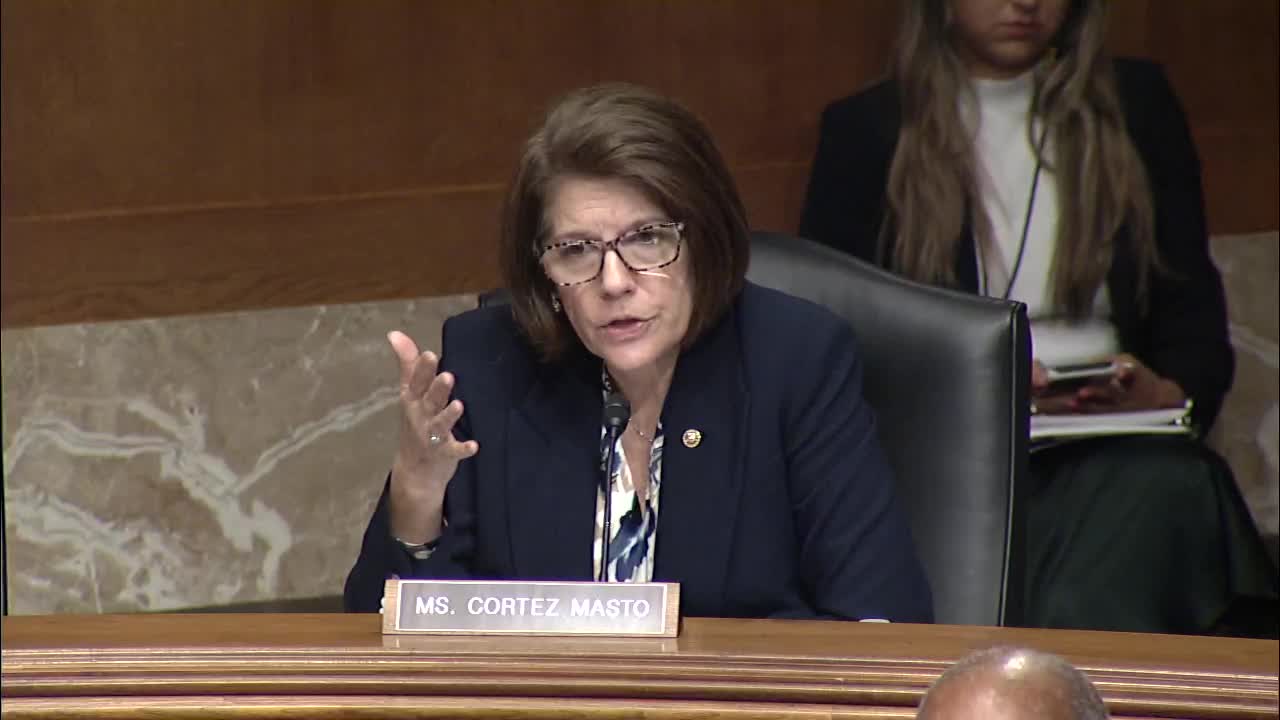Alaska Commission Explores Technical Assistance for Tribal Infrastructure Development
September 10, 2025 | Indian Affairs: Senate Committee, Standing Committees - House & Senate, Congressional Hearings Compilation
This article was created by AI summarizing key points discussed. AI makes mistakes, so for full details and context, please refer to the video of the full meeting. Please report any errors so we can fix them. Report an error »

In a recent government meeting, discussions centered around the potential appointment of William Kirkland as the Assistant Secretary for Indian Affairs and the broader theme of enhancing energy initiatives in Indian Country. The meeting, held by the U.S. Senate Committee on Indian Affairs, highlighted the importance of partnerships and technical assistance in developing energy projects, particularly in tribal communities.
As representatives shared insights, the conversation turned to the successful models of energy development seen in states like Montana and Alaska. Participants emphasized the need for tailored technical support to help communities navigate the complexities of transforming challenges into fundable projects. This support is crucial, especially in areas where resources are limited and expertise in grant writing or permit applications is scarce.
One key takeaway was the idea of regional collaboration. By sharing knowledge and resources, tribal communities can learn from each other's successes and failures. The meeting underscored the importance of creating dedicated groups focused on specific infrastructure needs, such as energy, water, and transportation. This coordinated approach could help smaller communities overcome obstacles, particularly in regions like Alaska, where short construction seasons pose additional challenges.
The discussions also touched on the significance of technology transfer and the sharing of best practices. By fostering an environment of collaboration, stakeholders can enhance program delivery and ensure that valuable information is not kept in silos. The meeting concluded with a call for increased communication and coordination among various entities to support the unique needs of tribal communities in their energy endeavors.
As the Senate Committee continues to explore these vital issues, the potential appointment of Kirkland could signal a renewed commitment to addressing the energy challenges faced by Indian Country, paving the way for innovative solutions and sustainable development.
As representatives shared insights, the conversation turned to the successful models of energy development seen in states like Montana and Alaska. Participants emphasized the need for tailored technical support to help communities navigate the complexities of transforming challenges into fundable projects. This support is crucial, especially in areas where resources are limited and expertise in grant writing or permit applications is scarce.
One key takeaway was the idea of regional collaboration. By sharing knowledge and resources, tribal communities can learn from each other's successes and failures. The meeting underscored the importance of creating dedicated groups focused on specific infrastructure needs, such as energy, water, and transportation. This coordinated approach could help smaller communities overcome obstacles, particularly in regions like Alaska, where short construction seasons pose additional challenges.
The discussions also touched on the significance of technology transfer and the sharing of best practices. By fostering an environment of collaboration, stakeholders can enhance program delivery and ensure that valuable information is not kept in silos. The meeting concluded with a call for increased communication and coordination among various entities to support the unique needs of tribal communities in their energy endeavors.
As the Senate Committee continues to explore these vital issues, the potential appointment of Kirkland could signal a renewed commitment to addressing the energy challenges faced by Indian Country, paving the way for innovative solutions and sustainable development.
View full meeting
This article is based on a recent meeting—watch the full video and explore the complete transcript for deeper insights into the discussion.
View full meeting